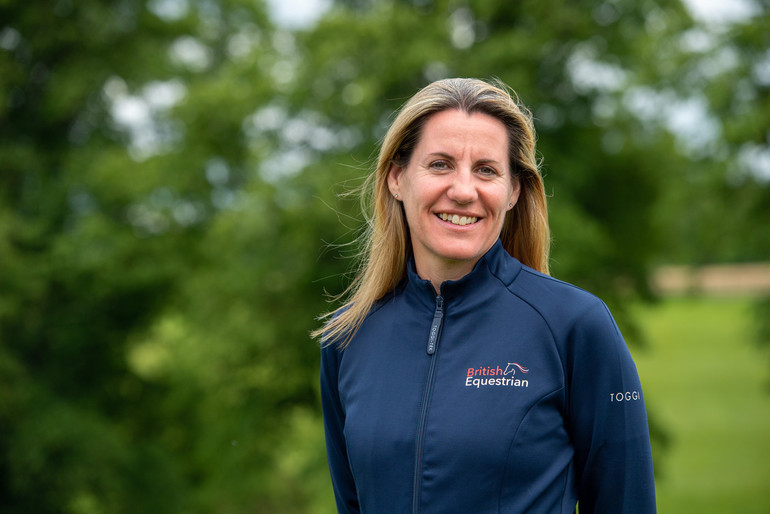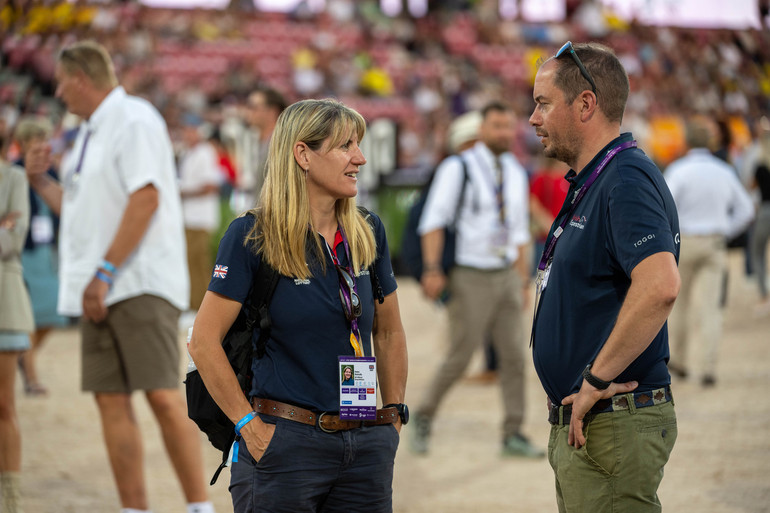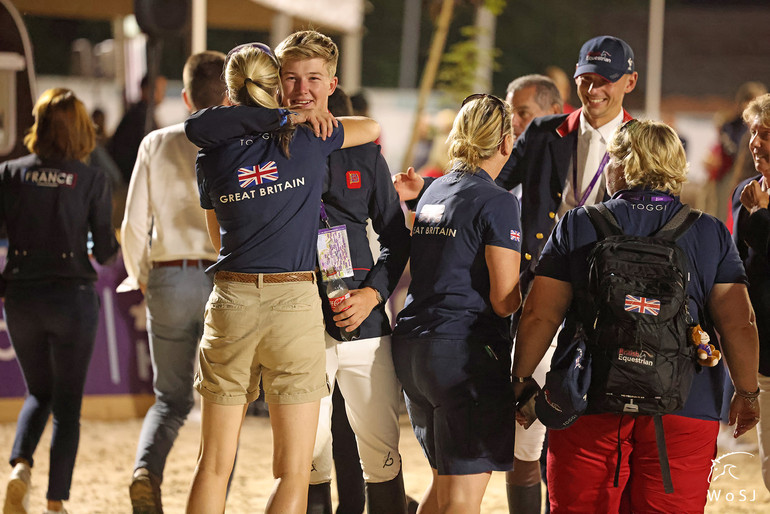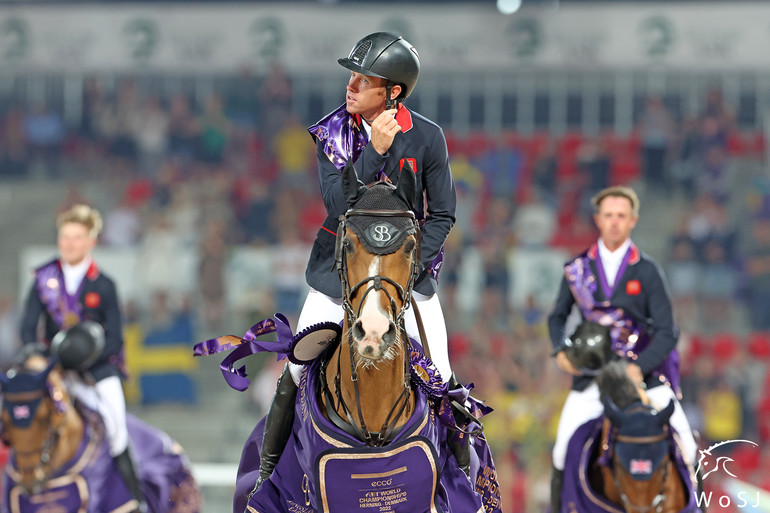Text © World of Showjumping
“Jumping riders are some of the best elite athletes I have ever come across in my life,” Helen Nicholls – British Equestrian’s Performance Director – tells World of Showjumping. “They are incredibly professional and driven; at the level of a F1 driver – and at the top of their game. Their professionalism and approach are incredible and they probably place equine welfare way above their own. At British Equestrian, we equally focus on the human sports science as well as the equine side, helping riders make sure they can deliver at the same level their horses can. Riders are athletes and so anything we can do to support them in being at the same elite level as their horses creates a performance gain for them.”
An outside view
Nicholls was appointed to her role at British Equestrian in 2022, after a long career in other sports. “I was a professional athlete – a sailor – for ten years and worked at British Sailing as a coach and a manager. In Great Britain, we have an overarching sport agency across all Olympic and Paralympic sports called UK Sport, which distributes funding from both the Government and the National Lottery – it’s an amazing system and the reason Great Britain has achieved sustained Olympic & Paralympic success to date. I worked for UK Sport across many different sports, helping them organize their world class program and medal projects. One of the programs I worked with was equestrian. I have also had a horse myself and rode, so that is how I came into this role last year. In my role as Performance Director, I look after all of the programs and all of the riders in all disciplines,” she explains.
I have been to world championships in at least 12 different sports and the challenges are remarkably similar
“Sometimes, coming in from the outside can help as you see things that someone who’s been on the inside for decades might not notice,” Nicholls continues. “I came from a background in elite sports, and a part of my job had been going into other sports I knew nothing about and helping them optimise their performances. I have been to world championships in at least 12 different sports and the challenges are remarkably similar; there will always be somebody with a rules question, there will be someone who’s lost their accreditation, an athlete that has lost their confidence, another one that is having the event of their life, – the tasks and the challenges on elite level are very, very similar from sport to sport. My job, at its core, is to employ and support the absolute best in their field, both equine and human, and help them be brilliant. In addition to riders, grooms are hugely important as well. Ultimately, they help deliver performance, so why wouldn’t you support them and help them be the best they can be? I would say a nation that isn’t doing so is missing on performance.”
Grooms help deliver performance, so why wouldn’t you support them and help them be the best they can be?
“In Great Britain, we are in a fortunate position having qualified to Paris 2024 in Herning last year,” Nicholls says about the big goals ahead for the British jumping team for the next two years. “That is a huge credit to the team, it means that in the run towards the Olympics, we can focus on performance. The Europeans are very important as well, and riders are keen to go to a championship and want to deliver – now we have the benefit of not being distracted by chasing an Olympic qualification.”
Educating the next generation
Nicholls believes that the best way to secure a sustainable future for equestrian sports is to educate, not regulate. “When it comes to our approach in Great Britain, it is very much about education more than anything,” she says. “If you have good education and communication – and culture in general – the rules take care of themselves. The elite program we run across all our disciplines is split into three levels: P1 at the top, then P2 and P3. When an athlete comes into the program at P3, we put a lot of the emphasis on education – and that is education across everything, from horse welfare and horse care to running a business and how to manage staff, how to manage travel, developing a brand… The riding can be the easy bit sometimes for an athlete to manage! Usually, all of the other stuff around riding is where it all can go wrong and where people can make mistakes or might not have the right education or support to thrive at the highest levels. Therefore, we put a lot of focus on education at the lower levels of our programs which then allows us to set the culture of what is expected, what the standards are and how the programs run. We hope that by doing this at the lower levels, we set a culture and the rest takes care of itself: We provide the advice and the guidance, explain the why, which then allows people to make the correct choices.”
We put a lot of focus on education at the lower levels of our programs which then allows us to set the culture of what is expected
“We are also very aware of the issues with our sport’s social license to operate, and that the answer for this as well is in education and communication,” Nicholls points out. “We should educate and not legislate. When people know what the right thing to do is, and the culture of acceptance is there, that is the answer. In the equine world, 99,9% of the people want the very best for their horses; communicating that and helping people to understand and see that, is a journey we have to go on. For me, one of the things to be aware of, is that for those outside the equestrian world, some of the terms used in our sport are quite confusing, there are different terms that could be more acceptable. We have to think carefully how we present our sport, communicate to all audiences, make sure we are looking not only inside equestrian but also outside. However, it is about education; the what, and why.”
When people know what the right thing to do is, and the culture of acceptance is there, that is the answer
In addition to education and clear pathways for their youth, Nicholls believes that the level of competition – both national and international – available for British riders is a massive advantage. “I think we are lucky with the huge amount of competition available at all levels; we have access to quality events and we in Europe are fortunate to have that. In Great Britain, we are positive about the future, because when we look behind our riders at the top, we see a healthy pathway of very talented riders coming after them, and that creates a very positive environment. And when we look at Europe, we see the high level of competition that is available, and again, that is really healthy. However, we should not take for granted the brilliant circuits that we have on offer for us. It costs to go to an event, but at least in showjumping there is a commercially profitable circuit available, while some of the other disciplines don’t have that. I think for showjumping, you have to look at what you have got and how good it is and keep building and protecting what is working. If you compare to eventing as an example, they go to events in Europe where the prize money is miniscule and the cost of getting there is huge. In showjumping there are circuits with commercial opportunities and interests, and showjumping needs to make sure to understand the positives and capitalize on the positives."
Global representation
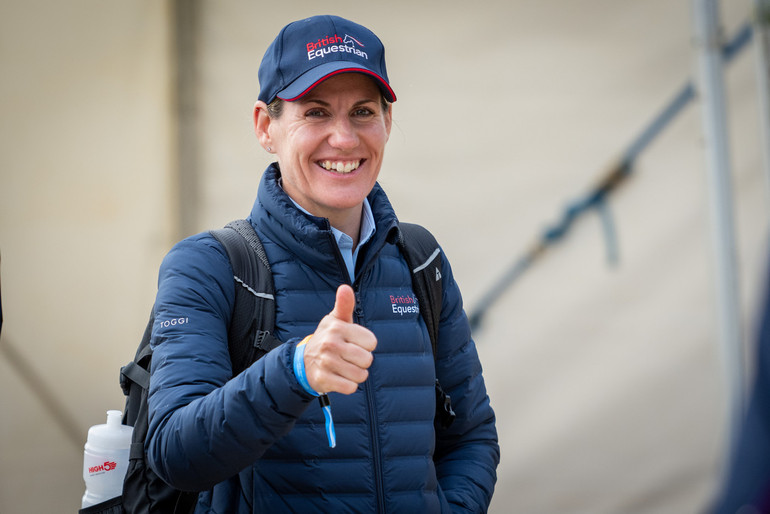 “As a community, we have to consider how to keep making our sport more global. How do we make sure that riders who are in South America, Africa, Asia, New Zealand or Australia also can have access to quality competition on a regular basis?," Nicholls points out. Photo © British Equestrian/John Stroud.
“As a community, we have to consider how to keep making our sport more global. How do we make sure that riders who are in South America, Africa, Asia, New Zealand or Australia also can have access to quality competition on a regular basis?," Nicholls points out. Photo © British Equestrian/John Stroud.
While Nicholls is positive about the future, she believes that making sure our sport remains globally represented is a key issue. “As a community, we have to consider how to keep making our sport more global. How do we make sure that riders who are in South America, Africa, Asia, New Zealand or Australia also can have access to quality competition on a regular basis? In any sport, you have to have global representation if you want to stay in the Olympic family. Therefore, the small countries do matter and they do need a place at the table.”
Having a system that represents the interests and views of both small and large federations and recognizes the weight of the big nations is tricky
“However, having a system that represents the interests and views of both small and large federations and recognizes the weight of the big nations is tricky, but I think many other international sporting federations struggle with this as well – it’s not an ‘equestrian’ issue. There is a difference between a large established federation and a small federation, but how do we create a voting system that fairly reflects that input while also making sure that the decisions aren’t just made by the biggest eight nations and their best interests? I think the FEI could look at other sports that have dealt with that challenge – and see how they have managed to progress. When it comes to the current voting system within the FEI, it is really easy to say what is wrong, but it is really difficult to come up with a solution that actually does what you need it to do and so I am always keen that people focus on solutions and options and not problems.”
In any sport, you have to have global representation if you want to stay in the Olympic family
“I come from a background of lots of different sports, and I have seen how other very big, longstanding international federations work,” Nicholls continues. “It can be easy to see the difficulties a federation has, but the fact that in FEI we have a stable, good, well-governed international federation, is hugely important and should be valued. With any federation, if you pull it back to what the actual purpose of an international federation is; it is to provide well-governed, well-regulated sport, and does the FEI do that? Yes, it does. Could it do more? I am sure it could. Making sure that the sport stays globally competitive is important for the future. And that it is not just Europe, not just America, but that we have a global sport; this ultimately affects the Olympics, and the riders deserve their position there as a major sport that really matters. Getting the balance right and making sure our sport is global so that there is competition from every single nation possible at those championships, is essential.”
Riders’ involvement; the holy grail
Speaking about riders’ involvement when it comes to politics and policy, Nicholls believes this to be the holy grail in sports. “Trying to make sure that the athletes can drive change, not just when things are going wrong, but when things are going good as well, has always been a challenge,” she says.
“In the UK we have recently set up a Riders’ Advisory Group, where we ask the riders for their input, get their feedback and consult on big matters. However, most riders just want to ride which is entirely understandable. We try to make it easy for our riders to share their views, so that it does not take too much of their time. We want to hear what they have to say, and we also want to give them the right information so that they can have an educated perspective on things and can appreciate some of the contexts that decisions are made within.”
No reproduction of any of the content in this article will be accepted without a written permission, all rights reserved © World of Showjumping.com. If copyright violations occur, a penalty fee will apply.



